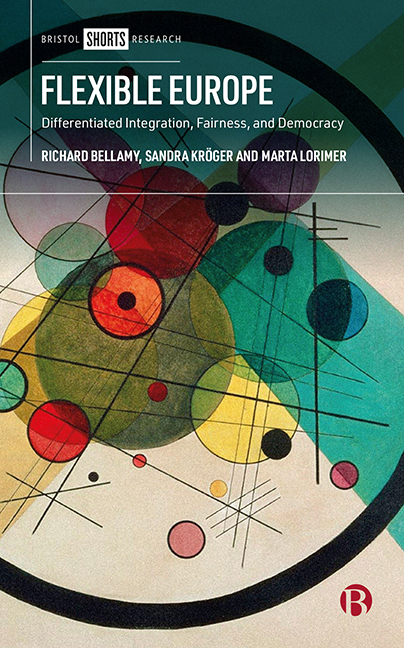Book contents
- Frontmatter
- Contents
- List of Tables
- List of Abbreviations
- About the Authors
- Acknowledgements
- Introduction
- PART I Normative Perspectives on Differentiated Integration
- PART II Political Party Perspectives on Differentiated Integration
- Conclusion
- Appendix A List of Respondents
- Appendix B Interview Questions
- Appendix C Survey Questions
- Notes
- References
- Index
two - Democracy, Domination, and Differentiated Integration
Published online by Cambridge University Press: 15 September 2022
- Frontmatter
- Contents
- List of Tables
- List of Abbreviations
- About the Authors
- Acknowledgements
- Introduction
- PART I Normative Perspectives on Differentiated Integration
- PART II Political Party Perspectives on Differentiated Integration
- Conclusion
- Appendix A List of Respondents
- Appendix B Interview Questions
- Appendix C Survey Questions
- Notes
- References
- Index
Summary
Chapter 1 looked at how DI can either promote or weaken substantive fairness among both member states and citizens, and might be legitimized and constrained by certain democratic arrangements designed to ensure procedural fairness. Here we explore further how democracy may itself justify and require certain forms of DI. As we noted in the Introduction, one motivation for states to join the EU arises from the challenge globalization poses to democratic decision-making within them. Transnational processes and organizations, such as financial markets and multinational companies, can detract from the democratic control citizens are able to exert from within any single state over the social and economic forces to which they are subject. Likewise, the domestic policies of one state may produce either negative or positive externalities that undercut the contrasting domestic policies of other states. As a result, states become liable to domination by other states or various organizations and networks that operate across them. By cooperating with each other and integrating certain policy areas, states enable their citizens to retain control by placing both their interactions and the operations of various transnational actors under their mutual governance. However, for reasons we shall investigate, these joint arrangements may themselves become a source of domination that DI can alleviate.
Domination consists in the ability of one agent or set of agents, such as a state or group of companies, to exercise power over another agent or agents in an arbitrary manner, without having to consult and respond to their views and interests (Pettit, 2010, pp 73– 5, 77– 9). Those dominated in this way must alter their behaviour so as to anticipate the possibility of such arbitrary acts, say by attempting to avert them by propitiating their dominators. For example, they may seek to appease a multinational company by offering a beneficial tax regime and so alleviate the risk of their moving elsewhere. The capacity to exercise such arbitrary acts of power arises from inequalities in influence and control between the dominator and the dominated, and a degree of dependency of the latter on the former. Domestic democratic systems reduce the prospects of such arbitrariness.
- Type
- Chapter
- Information
- Flexible EuropeDifferentiated Integration, Fairness, and Democracy, pp. 49 - 67Publisher: Bristol University PressPrint publication year: 2022



